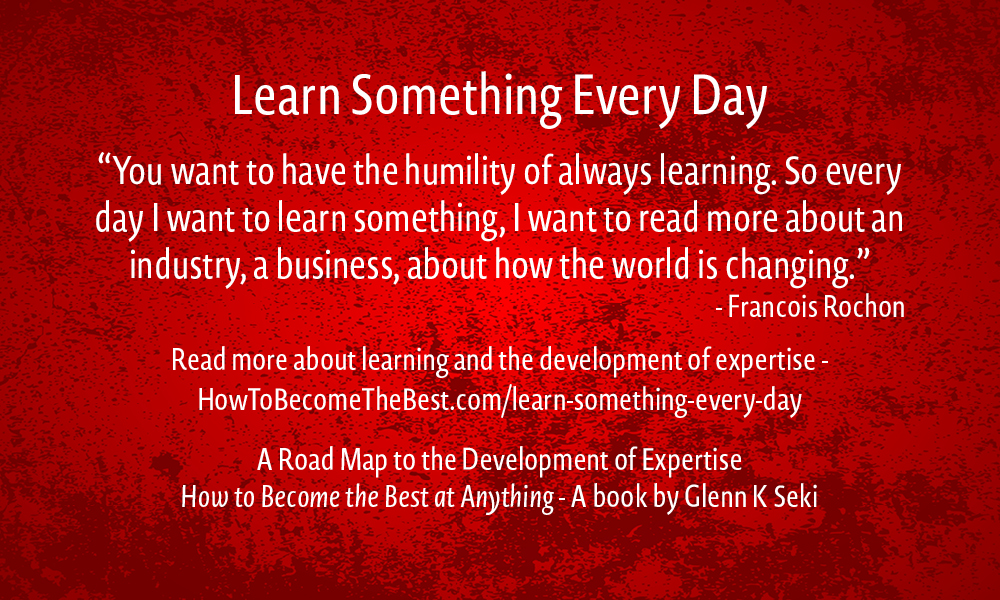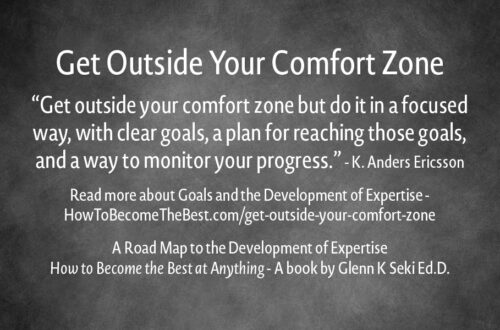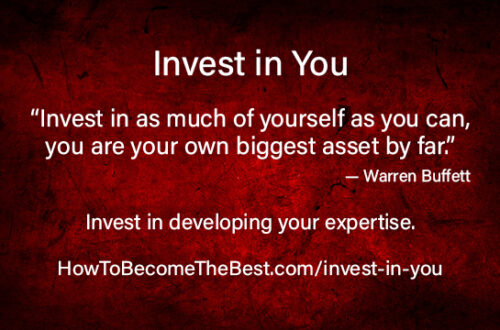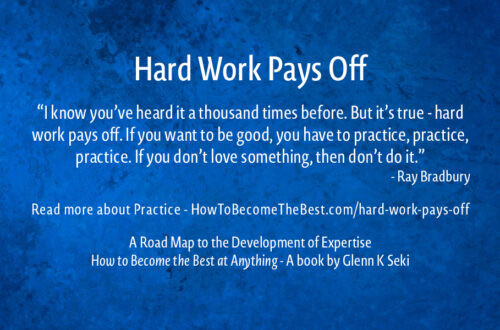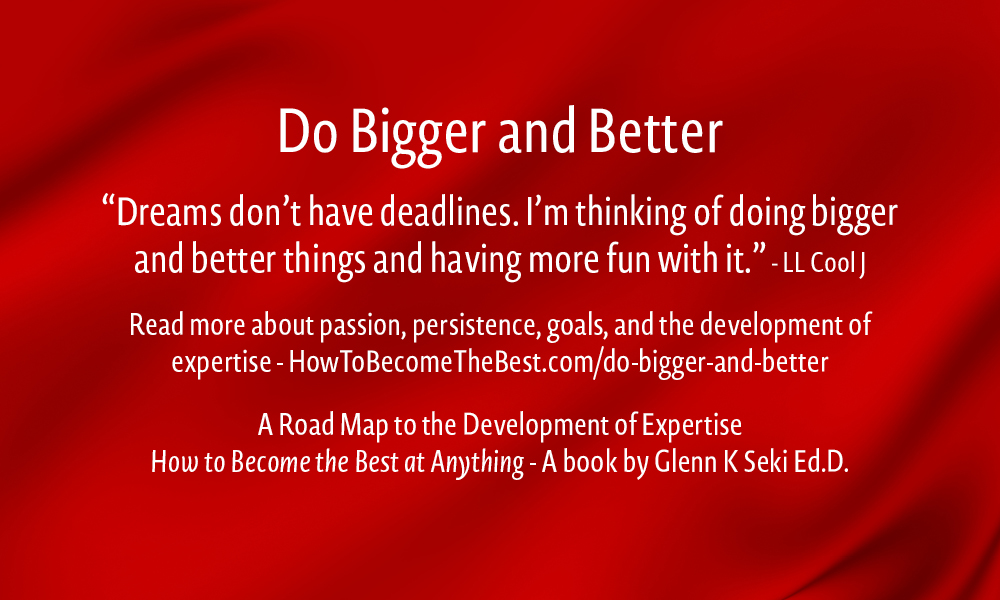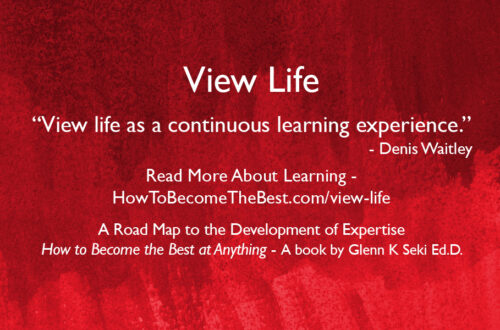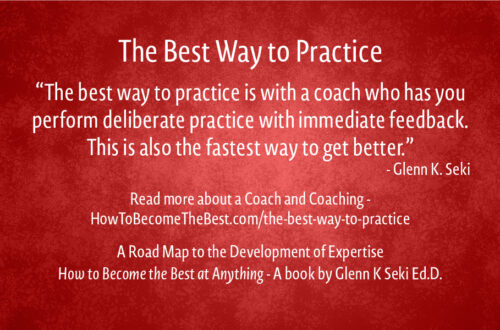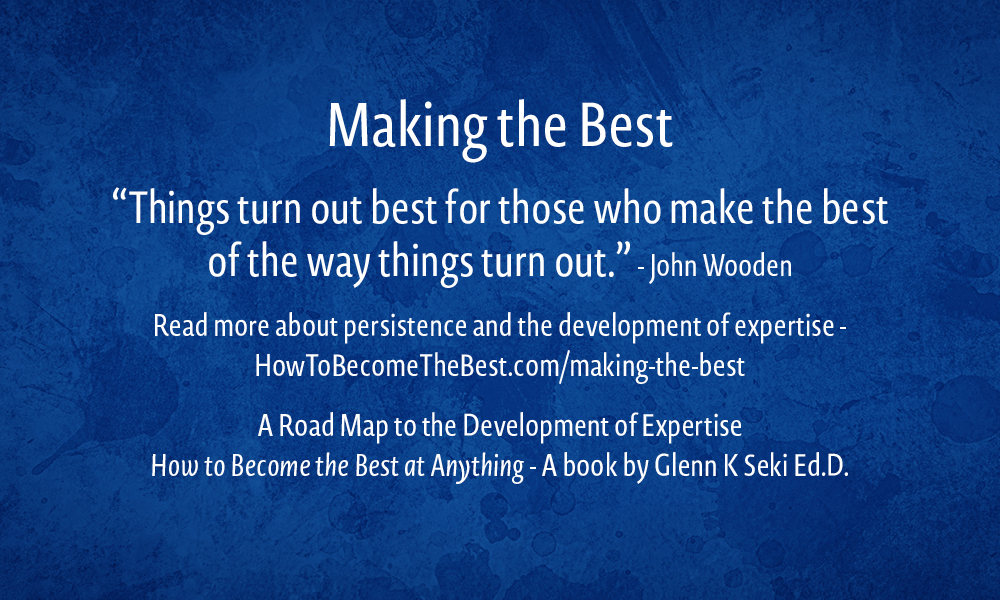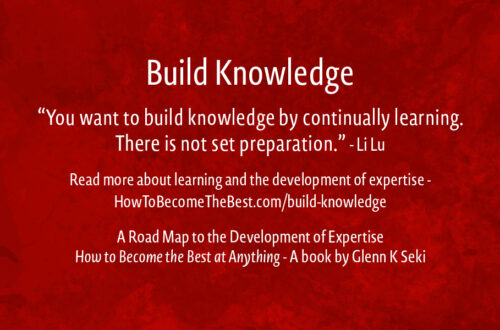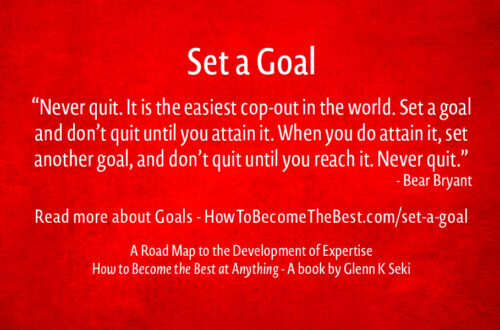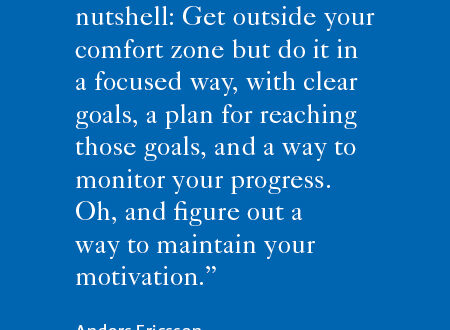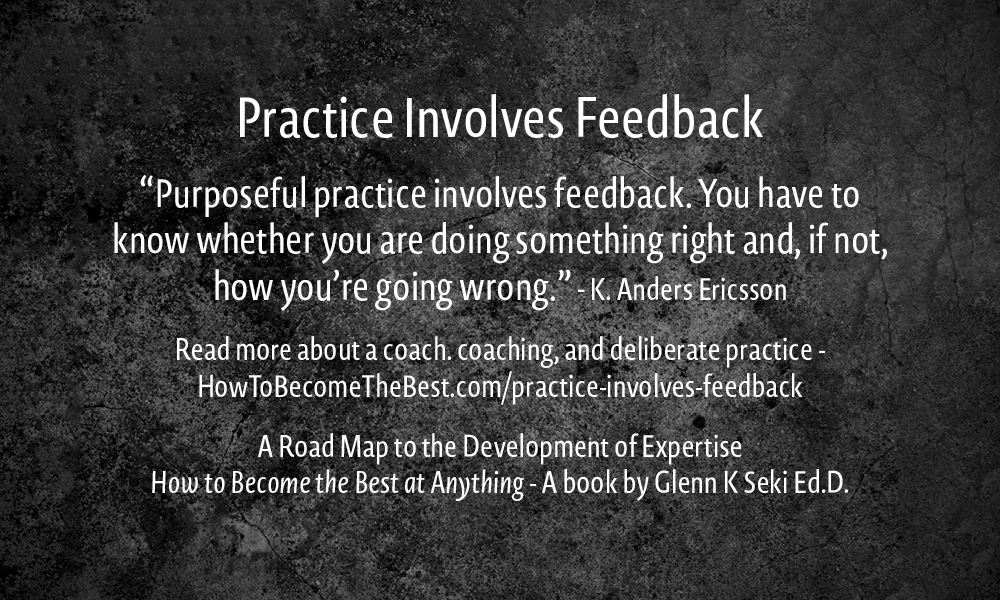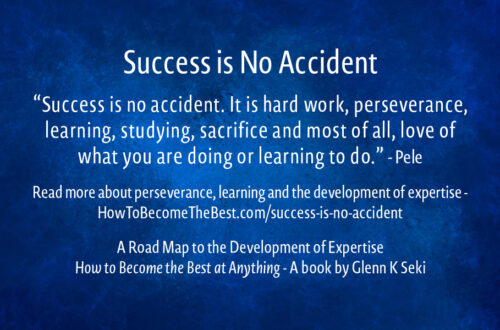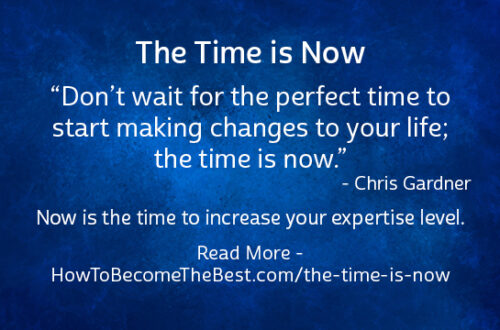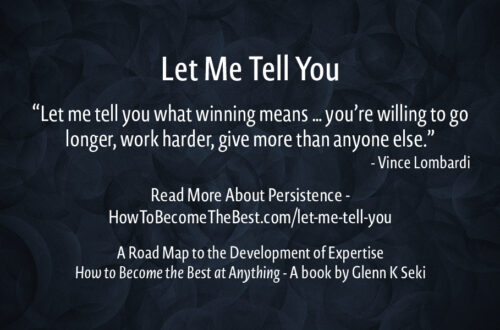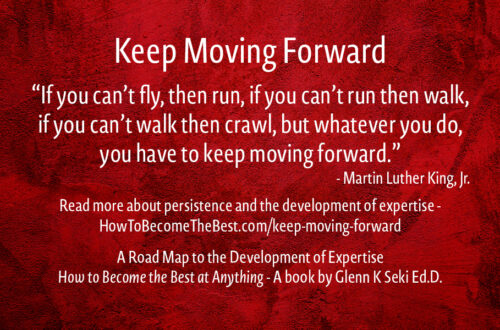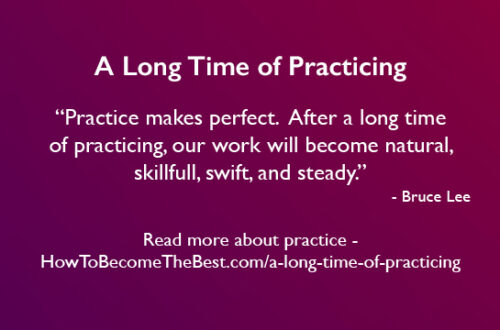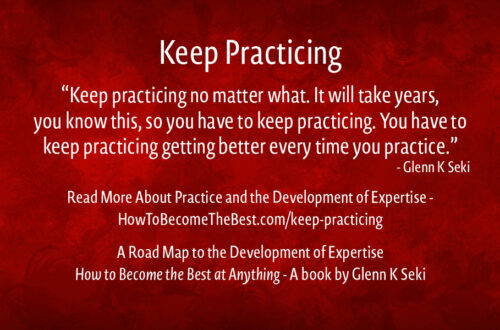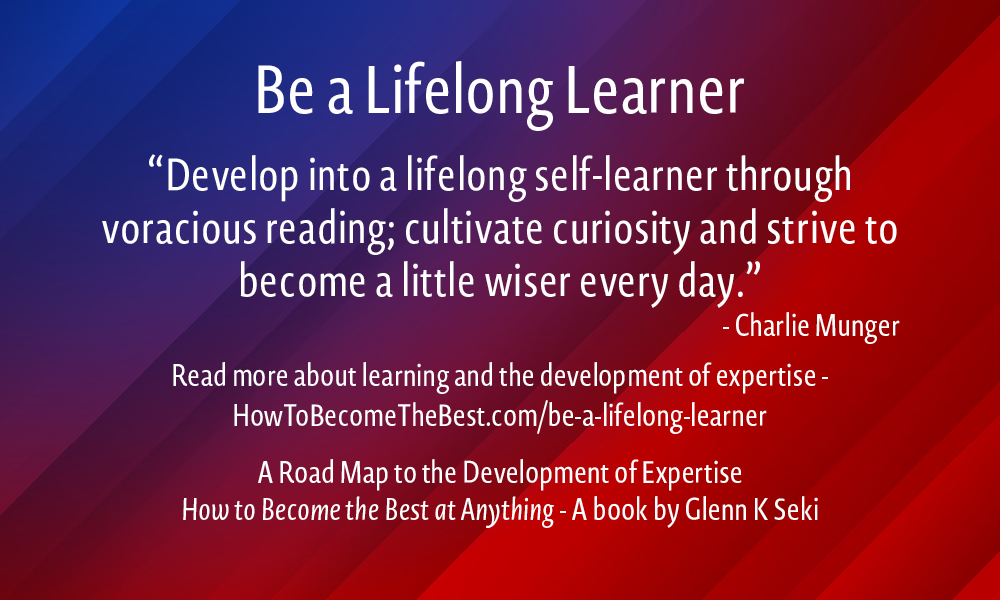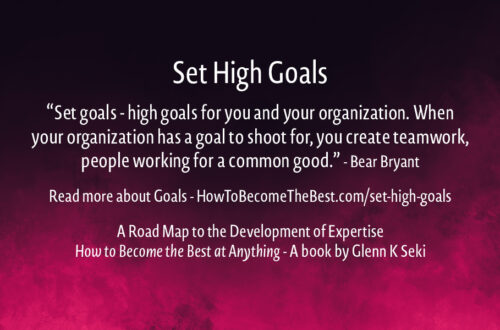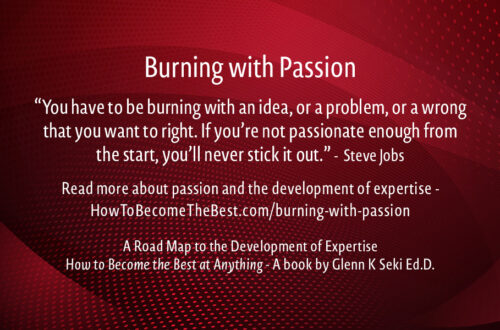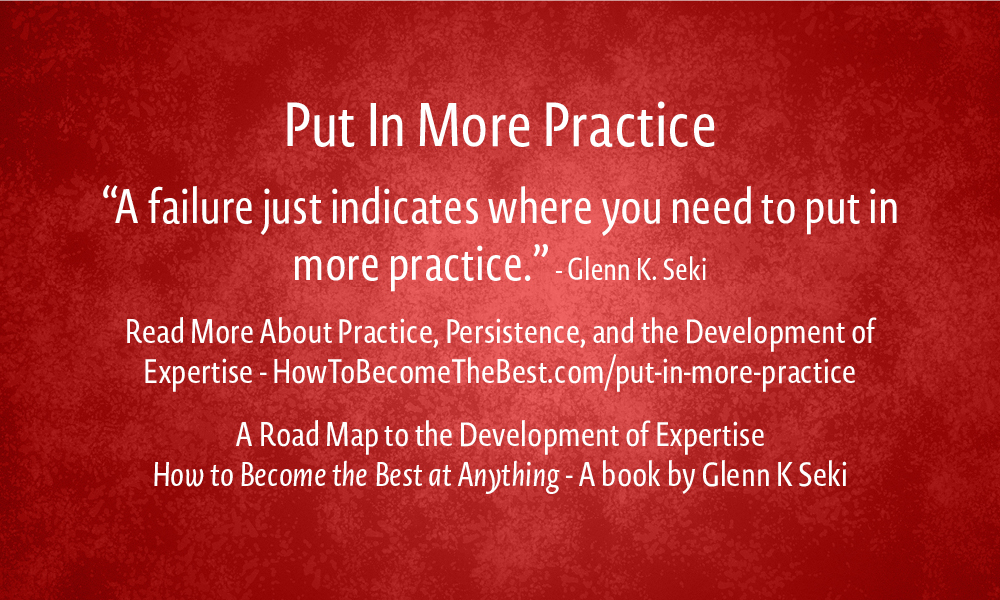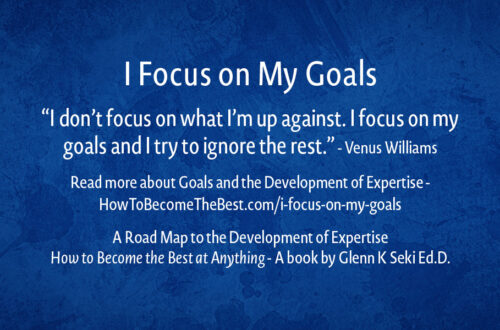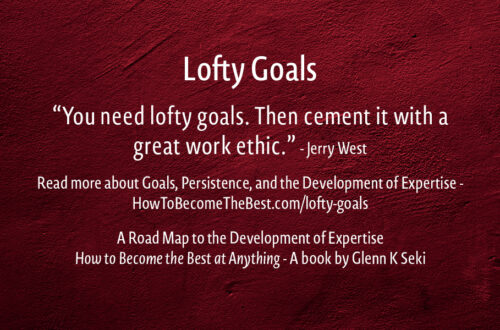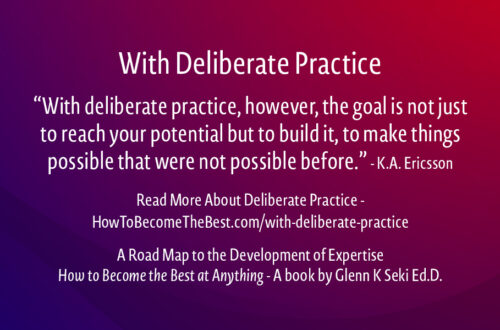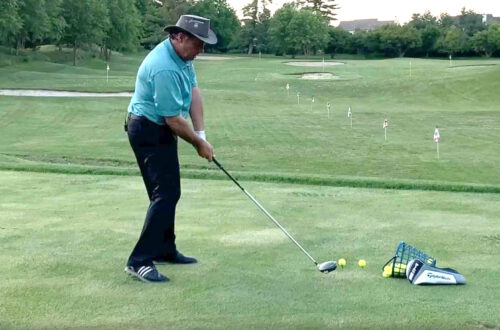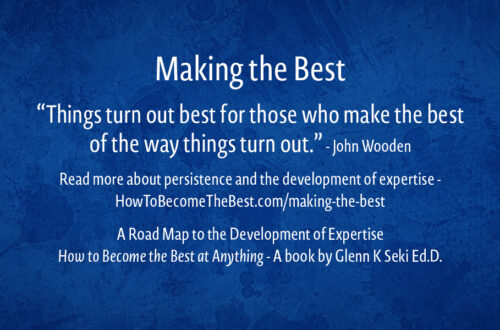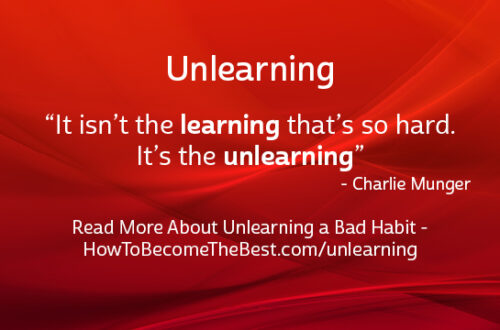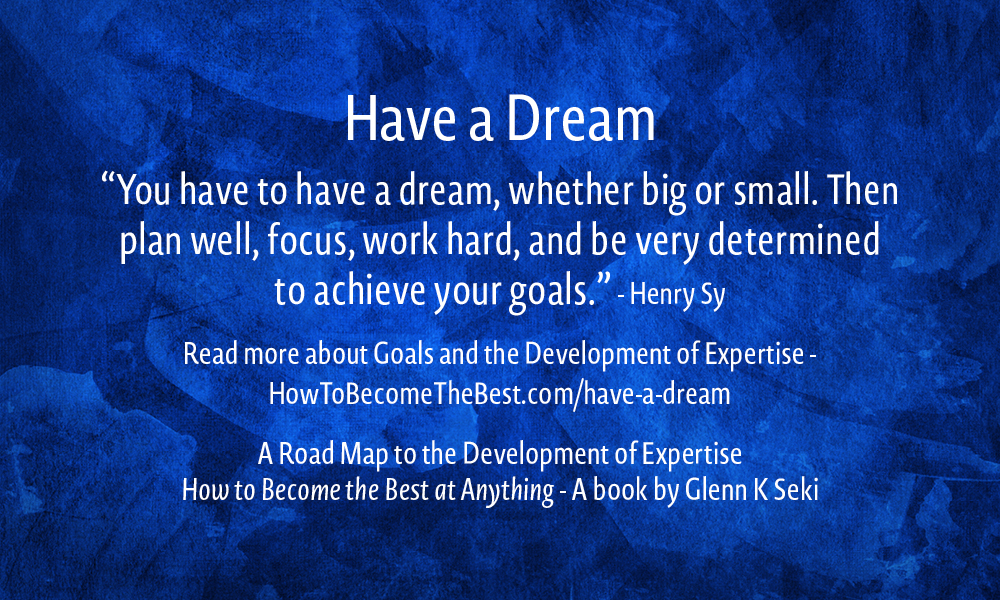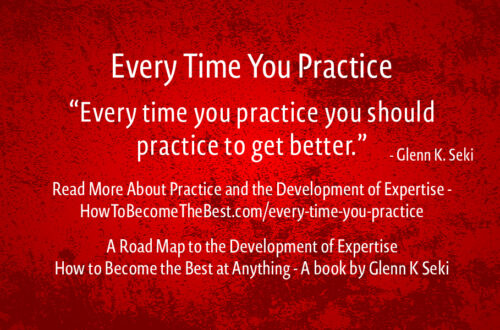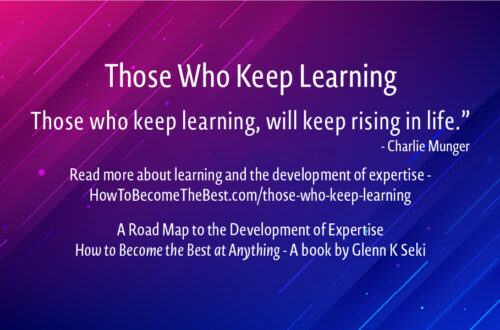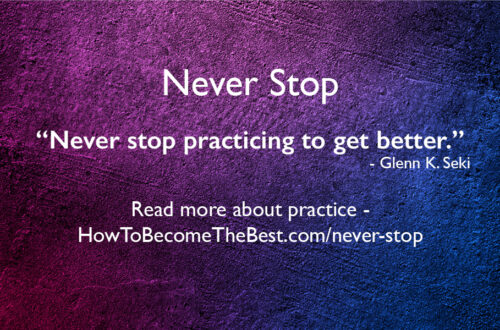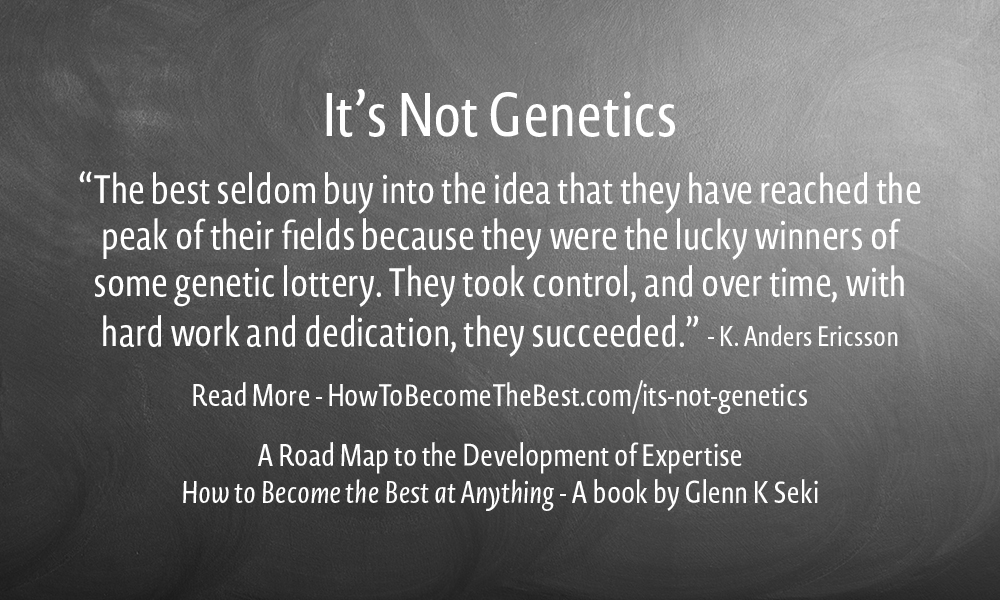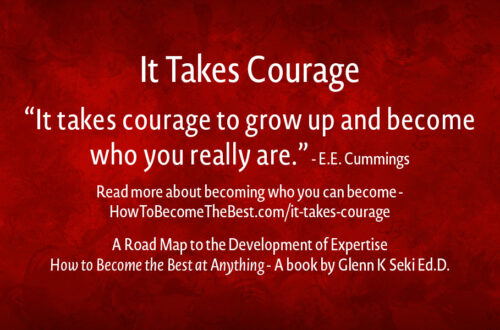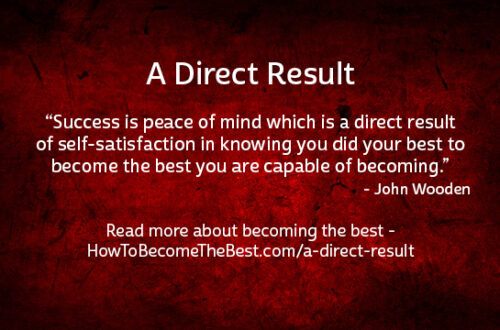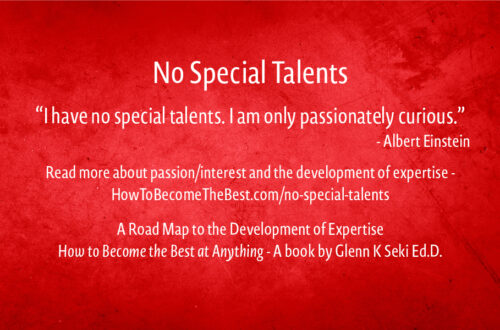“You want to have the humility of always learning. So every day I want to learn something, I want to read more about an industry, a business, about how the world is changing.” – Francois Rochon *** How you learn something… An excerpt from How To Become The Best at Anything, Chapter 8, Deliberate Practice and Learning Learning “When you are trying to learn something new or you are teaching someone something new, it can be a very daunting task. It is difficult because learning something new is not easy, but it can be made easier if you understand how learning works. Learning can be divided into four basic parts:…
-
-
Do Bigger and Better
“Dreams don’t have deadlines. I’m thinking of doing bigger and better things and having more fun with it.” – LL Cool J *** Passion, Persistence, Goals, and the Development of Expertise *** An excerpt from How To Become The Best at Anything, Chapter 1, Passion and Interest “What is your passion? What are you passionate about? Are you passionate about a sport, say basketball, or surfing? Tennis anyone? How about art, or music. Perhaps you’re zeroed in on an academic field such as biology, or economics. Maybe you have a passion for exploring, with an eye on the Himalayas. Don’t have a passion, then what are you interested in? Interest…
-
Making the Best
“Things turn out best for those who make the best of the way things turn out.” – John Wooden *** Persistence and Motivation An excerpt from How To Become The Best at Anything, Chapter 9, Persistence, Motivation, and More About Your Path “Keep practicing no matter what. It will take years, you know this, so you have to keep practicing. You have to keep practicing getting better every time you practice. This is a very hard thing to do. You will get tired, bored, and frustrated. It is hard to keep your focus while practicing. I heard a story about John Wooden (often considered one of the greatest college basketball…
-
Practice Involves Feedback
“Purposeful practice involves feedback. You have to know whether you are doing something right and, if not, how you’re going wrong.” – K. Anders Ericsson *** A Coach and Coaching An excerpt from How To Become The Best at Anything, Chapter 7, A Coach and Coaching “You really need to have a coach/mentor/teacher/etc. A coach can be a parent, relative, friend, teacher, someone you hire, etc. Tiger Wood’s father introduced him to golf, Venus and Serena Williams’ father introduced them to tennis and coached them in their early years. You can have multiple coaches concurrently and consecutively. Your coaches should have a higher expertise level than you do, although they…
-
Find Your Authentic Self
“Finding your passion isn’t just about careers and money. it’s about finding your authentic self…” – Kristin Hannah *** An excerpt from How To Become The Best at Anything, Chapter 1, Passion and Interest “What is your passion? What are you passionate about? Are you passionate about a sport, say basketball, or surfing? Tennis anyone? How about art, or music. Perhaps you’re zeroed in on an academic field such as biology, or economics. Maybe you have a passion for exploring, with an eye on the Himalayas. Don’t have a passion, then what are you interested in? Interest and achievement go hand in hand. It is easier to achieve in a domain…
-
Be a Lifelong Learner
“Develop into a lifelong self-learner through voracious reading; cultivate curiosity and strive to become a little wiser every day.” – Charlie Munger *** How you learn something… An excerpt from How To Become The Best at Anything, Chapter 8, Deliberate Practice and Learning Learning “When you are trying to learn something new or you are teaching someone something new, it can be a very daunting task. It is difficult because learning something new is not easy, but it can be made easier if you understand how learning works. Learning can be divided into four basic parts: concepts (definitions and examples), processes (how it works sequences), principles (cause and effect relationships),…
-
Put In More Practice
“A failure just indicates where you need to put in more practice.” – Glenn K. Seki *** About Practice, Persistence, and the Development of Expertise *** An excerpt from How To Become The Best at Anything, Chapter 8, Deliberate Practice and Learning “To become the best takes practice, lots and lots of practice. I have mentioned the 10,000-hour rule. It takes about 10,000 hours of practice to get really good at something and not just any type of practice, but deliberate practice. Deliberate practice is practicing to get better. The classic example is a man who has gone golfing almost every weekend for the past twenty years. He has a…
-
Hang On
“When you reach the end of your rope, tie a knot in it and hang on.” – Franklin D. Roosevelt *** Persistence and Motivation An excerpt from How To Become The Best at Anything, Chapter 9, Persistence, Motivation, and More About Your Path “Keep practicing no matter what. It will take years, you know this, so you have to keep practicing. You have to keep practicing getting better every time you practice. This is a very hard thing to do. You will get tired, bored, and frustrated. It is hard to keep your focus while practicing. I heard a story about John Wooden (often considered one of the greatest college…
-
Have a Dream
“You have to have a dream, whether big or small. Then plan well, focus, work hard, and be very determined to achieve your goals.” – Henry Sy *** An excerpt from How To Become The Best at Anything, Chapter 6, A Goal and a Plan “You need to have a specific ultimate goal. Let’s say you want to win an Olympic gold medal in swimming in the 200-meter freestyle. You have a specific ultimate goal, which is a good start because you know your final destination. When I was in graduate school in biology at UCLA one of my classes was a graduate seminar consisting of three students and two…
-
It’s Not Genetics
“The best seldom buy into the idea that they have reached the peak of their fields because they were the lucky winners of some genetic lottery. They took control, and over time, with hard work and dedication, they succeeded.” – K. Anders Ericsson *** From – Peak: Secrets from the New Science of Expertise “If you talk to these extraordinary people, you find that they all understand this at one level or another. They may be unfamiliar with the concept of cognitive adaptability, but they seldom buy into the idea that they have reached the peak of their fields because they were the lucky winners of some genetic lottery. They…
